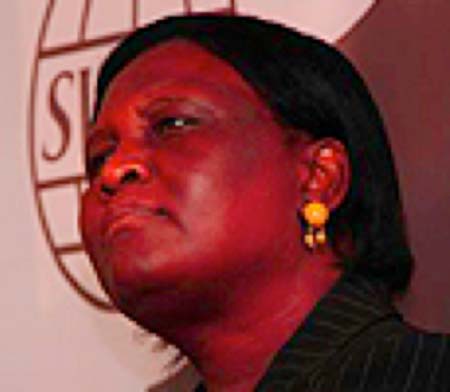
In his remarks, Dr Coffi R. Noumon, ACBF director of operations and manager for West and Central Africa, said the African Capacity Building Foundation is Africa’s premier capacity building institute, established in February 1991.
It was the outcome of a partnership between African governments and the international donor community, and the mission is to build sustainable human and institutional capacity to support growth, poverty reduction and good governance in Africa, he said.
He added that ACBF’s support is enshrined in six core competency areas, such as economic policy analysis and management, financial management and accountability, strengthening and monitoring of national statistics, public administration and management, strengthening of the policy analysis capacity of national parliaments and professionalism of the voices of the private sector and civil society.
“I hope this course will provide a good opportunity to deepen your understanding on innovative financing platforms, and the financing mechanisms for the post-2015 development agenda of African countries,” said Dr Noumon.
In his statement, Prof. Omotor Dauglasan, Adviser of business unit WAIFEM, said the course was held to provide participants with the introductory tools to effectively understand the key elements in the design, development, monitoring of programmes and contracts in a variety of sectors.
He said the course was also designed to enable participants to understand what characterizes Public Private Partnership (PPP), and the rationale behind undertaking the objective of PPP into the planning and budget cycle.
He thanked all for the excellent facilities placed at their disposal by the Central Bank of The Gambia for the smooth running of the workshop.
Prof. Dauglasan also expressed gratitude to the ECOWAS Commission, Ministries of Finance of Ghana and The Gambia, the Debt Management Office and the Infrastructure Concession Regulatory Commission of Nigeria for releasing their competent staff to share their knowledge and wealth of experience with the course participants.
The second deputy Governor of the Central Bank of The Gambia, Oumie Samba-Savage, in her remarks, said governments across the world are very keen to using PPPs to deliver infrastructure and public services, in order to find ways to meet the huge demand for infrastructure financing.
PPPs are long-term contractual arrangements where a government partners with the private sector to deliver infrastructure services, she stated.
She explained that PPPs could take several forms from simple contracts for private-sector-run road maintenance services, to more complex build-operate-translate or agreements, which necessitate funding by the private sector.
According to her, when governments plan to make infrastructure investments, they have to make two separate decisions, such as the decision to plan and prioritise individual investments and the decision on how to deliver those investments, either through loans, PPPs or other means.
On the necessity and prioritisation of investments, she said, governments must make decisions that would achieve their policy targets, and these include building roads, transportation and electrification, access to water and waste facilities, healthcare, and education programmes.
“In making such decisions, governments must ensure that they properly prioritise the needs of the people and the economy. They must also ensure that the investments are well-funded,” she noted.
She added that once the necessity and priority of projects are confirmed, governments need to determine how to deliver investments and consider value for money.
According to her, PPP is one of the options in a policymaker’s arsenal, and the decision to adopt PPP could be both economic and political.

